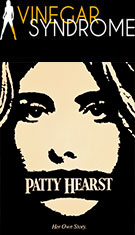
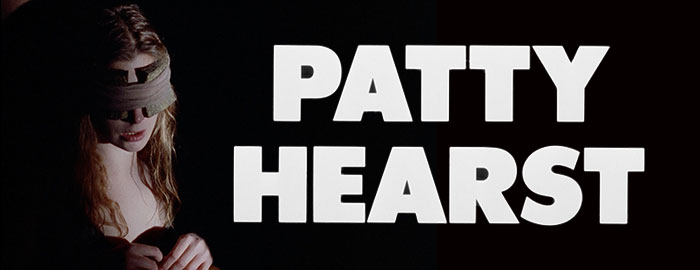


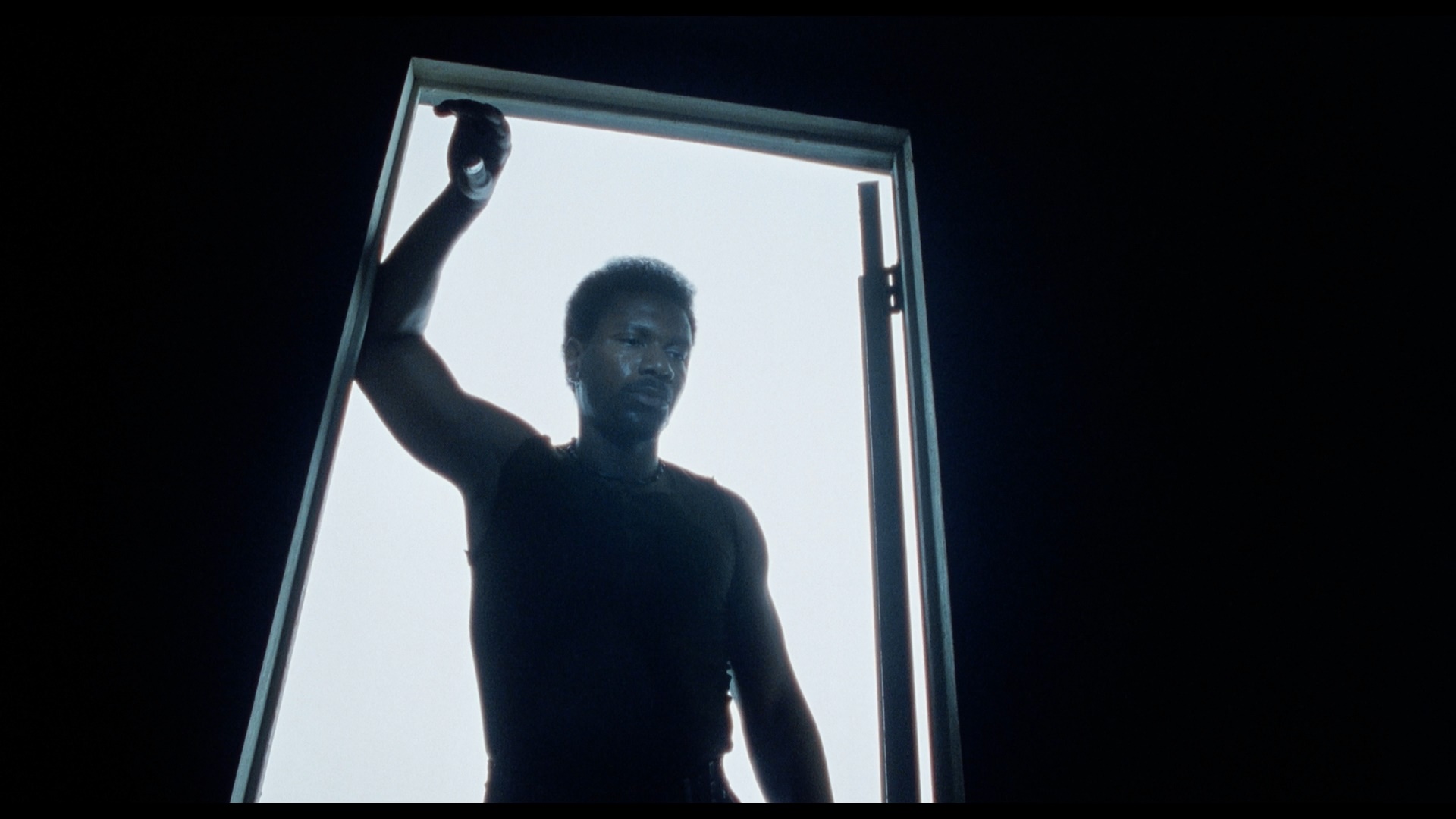 a decade filled with outrageous news
a decade filled with outrageous news 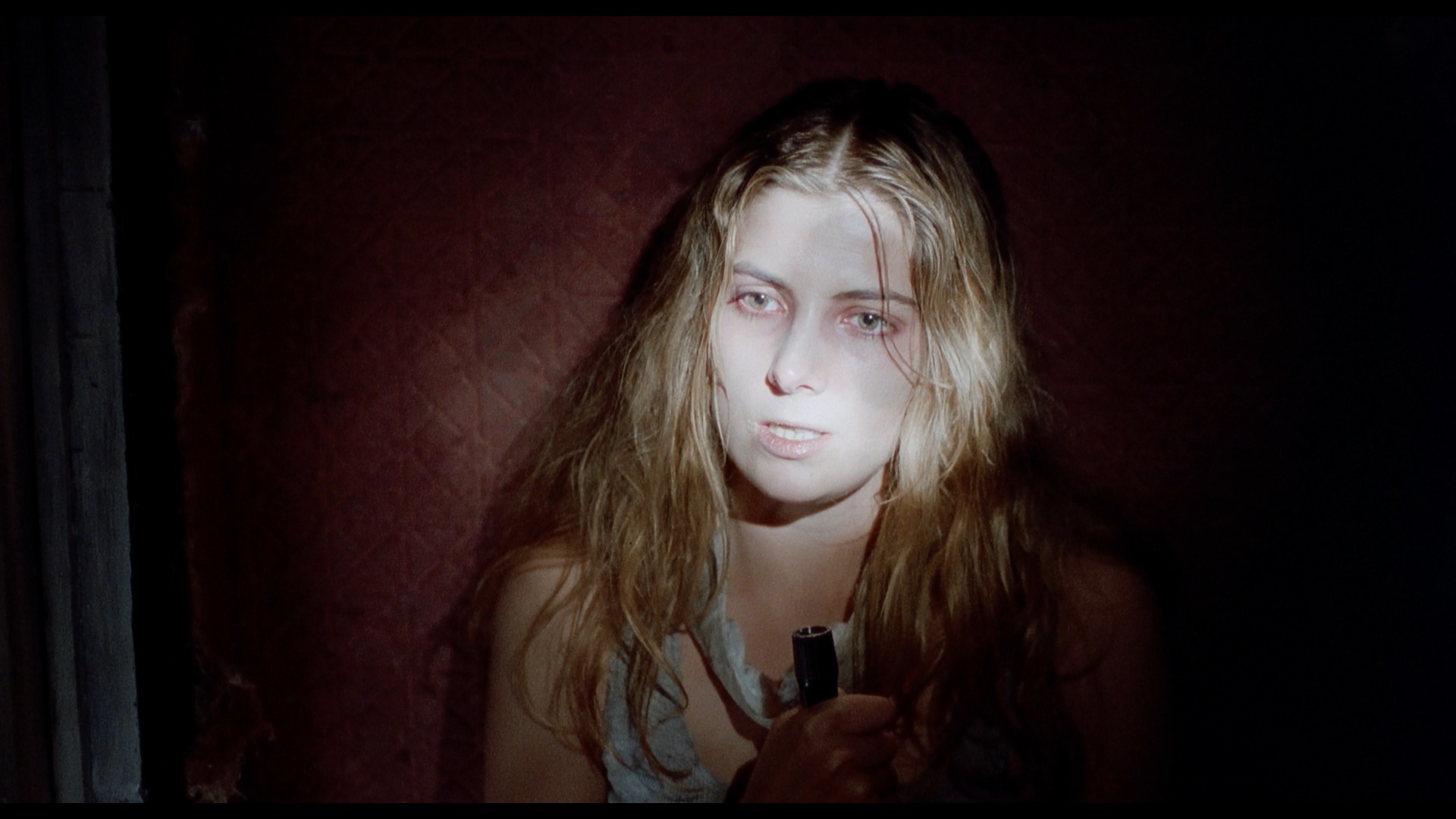 stories, few captured the public's imagination quite like the story of Patricia Hearst, granddaughter of famous newspaper tycoon William Randolph Hearst. In 1974, she was abducted by a terrorist organization, the Symbionese Liberation Army, from her home in Berkeley and underwent an 18-month ordeal that began as an attempted extortion to free the organization's members. Soon recorded messages by Hearst revealed that she had become a member herself and became a mouthpiece for its manifesto, though it later emerged that she had been abused and brainwashed over an extensive period of time. The sensationalist press coverage reached a fever pitch when Hearst participated in a bank robbery that proved to be instrumental in her liberation and return to normal life. Of course, she also went on to become a regular party of John Waters' acting repertory in films like Cry-Baby and Serial Mom, but that's another story.
stories, few captured the public's imagination quite like the story of Patricia Hearst, granddaughter of famous newspaper tycoon William Randolph Hearst. In 1974, she was abducted by a terrorist organization, the Symbionese Liberation Army, from her home in Berkeley and underwent an 18-month ordeal that began as an attempted extortion to free the organization's members. Soon recorded messages by Hearst revealed that she had become a member herself and became a mouthpiece for its manifesto, though it later emerged that she had been abused and brainwashed over an extensive period of time. The sensationalist press coverage reached a fever pitch when Hearst participated in a bank robbery that proved to be instrumental in her liberation and return to normal life. Of course, she also went on to become a regular party of John Waters' acting repertory in films like Cry-Baby and Serial Mom, but that's another story.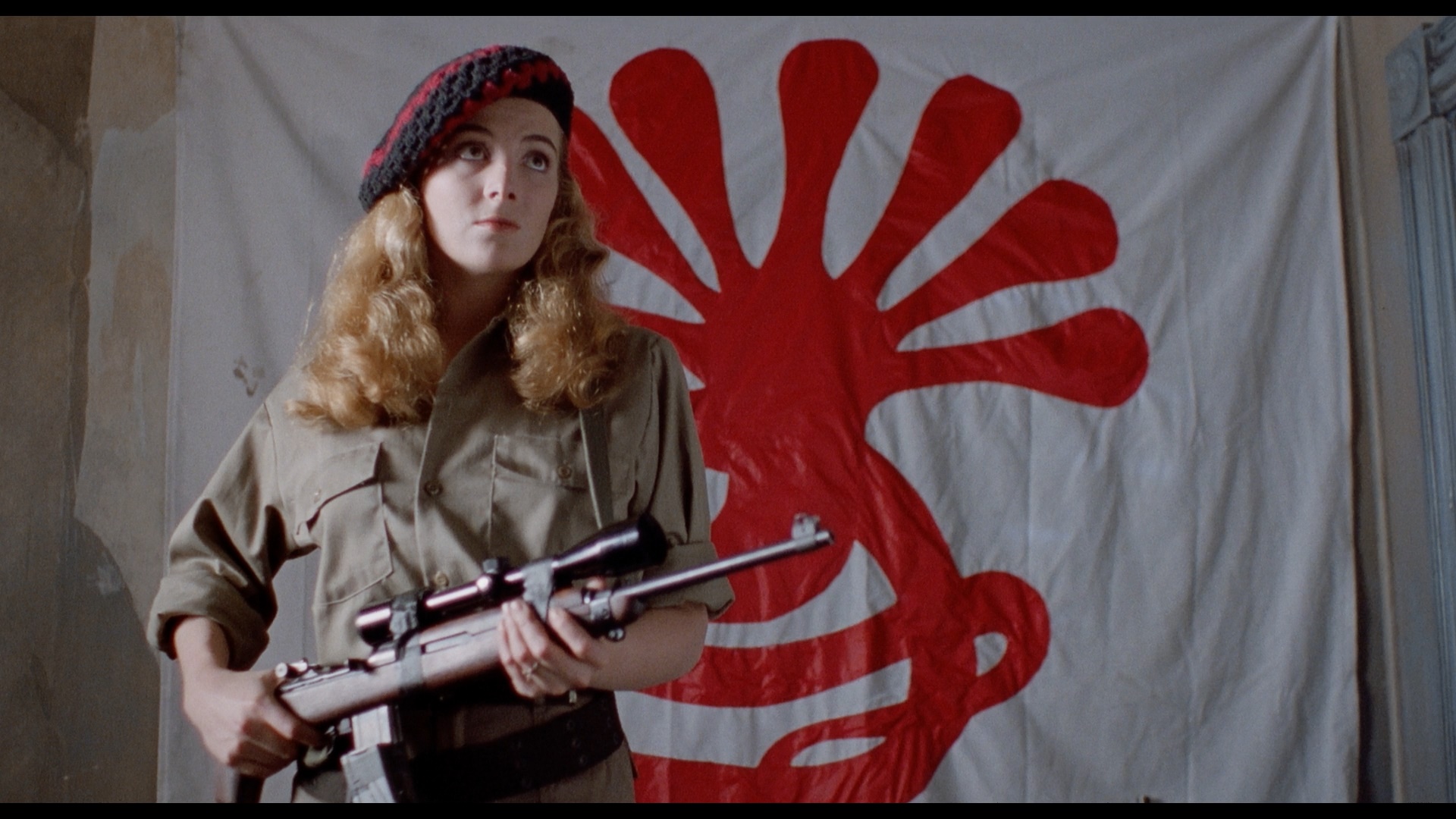 Incredibly, it took over a decade for the Hearst story to be officially adapted for the big screen in the form of Patty Hearst, directed by Paul Schrader and written by Nicholas Kazan (At Close Range). Based on Hearst's memoir, Every Secret Thing, the film is related from
Incredibly, it took over a decade for the Hearst story to be officially adapted for the big screen in the form of Patty Hearst, directed by Paul Schrader and written by Nicholas Kazan (At Close Range). Based on Hearst's memoir, Every Secret Thing, the film is related from 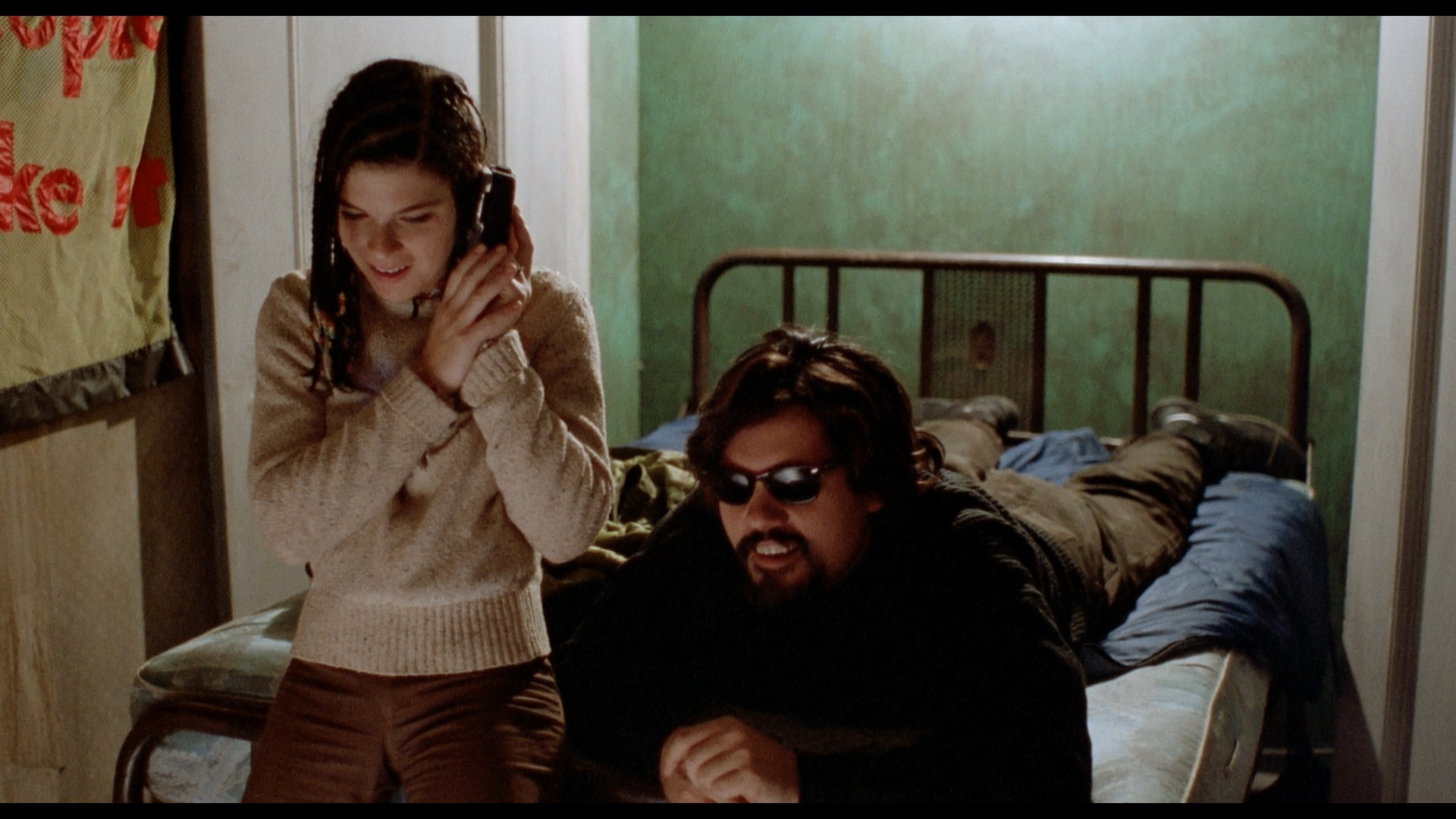 Hearst's perspective as she spends the first act confined in a single space and bombarded with propaganda from the members including Cinque, played by a very young Ving Rhames. Equipped with a solid cast including a scene-stealing William Forsythe and the always reliable Frances Fisher, Schrader (who was just coming off of the Hollywood drama Light of Day) gets to go back to the more experimental side he'd shown in Mishima: A Life in Four Chapters with the captivity scenes allowing him to use stylized lighting, disembodied voices, and fleeting flashbacks to disorienting but striking effect. Of course, the anchor of the film is easily the late Natasha Richardson, who thoroughly inhabits the role of Patty. Cast on the strength of her attention-getting role in Ken Russell's Gothic, she impressed Schrader enough to earn another leading role in his next film, the unsettling The Company of Strangers.
Hearst's perspective as she spends the first act confined in a single space and bombarded with propaganda from the members including Cinque, played by a very young Ving Rhames. Equipped with a solid cast including a scene-stealing William Forsythe and the always reliable Frances Fisher, Schrader (who was just coming off of the Hollywood drama Light of Day) gets to go back to the more experimental side he'd shown in Mishima: A Life in Four Chapters with the captivity scenes allowing him to use stylized lighting, disembodied voices, and fleeting flashbacks to disorienting but striking effect. Of course, the anchor of the film is easily the late Natasha Richardson, who thoroughly inhabits the role of Patty. Cast on the strength of her attention-getting role in Ken Russell's Gothic, she impressed Schrader enough to earn another leading role in his next film, the unsettling The Company of Strangers.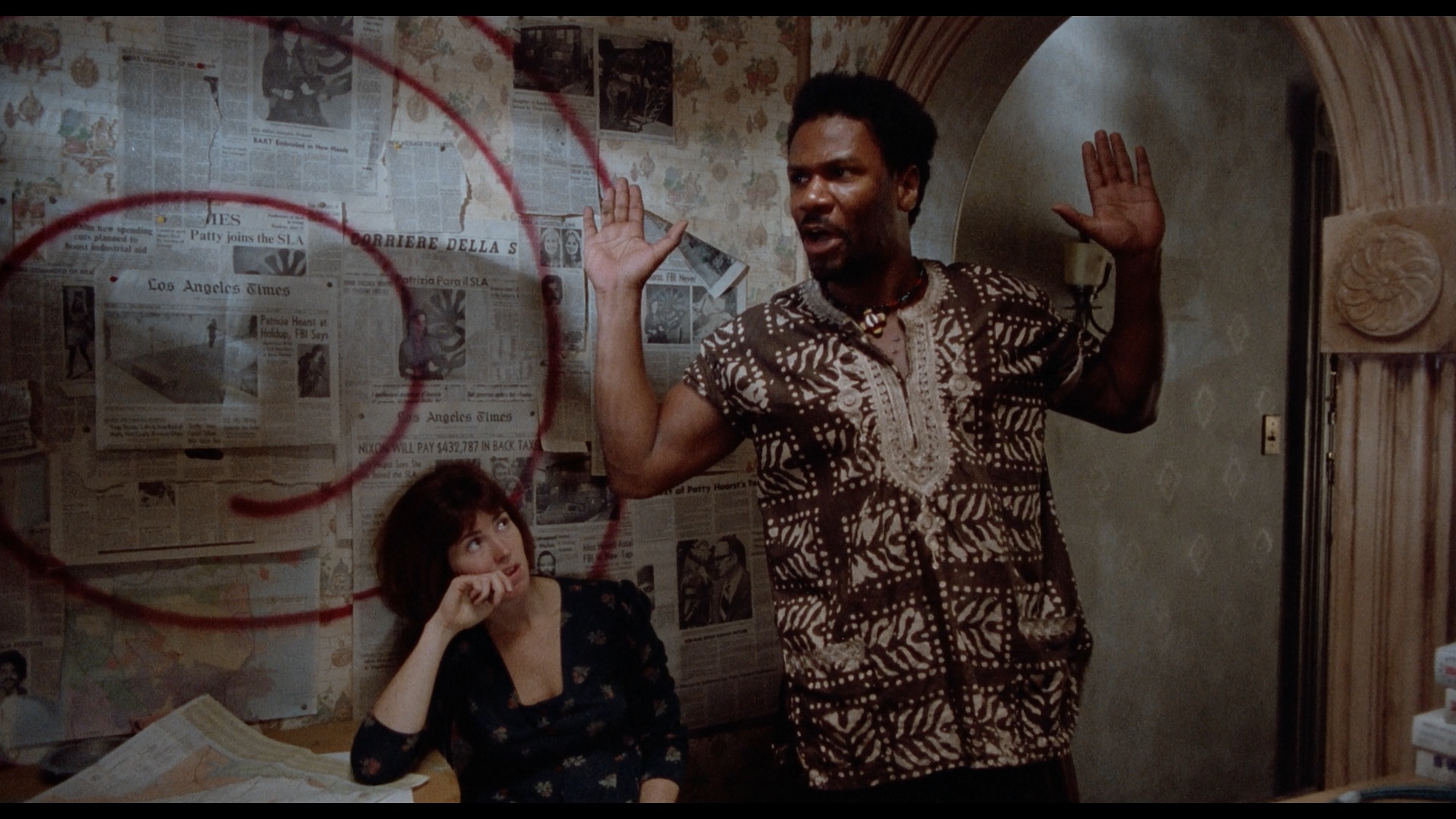 so anamorphic transfer. A far better option is the 2020 Blu-ray from Vinegar Syndrome, which touts a new 2K scan from the 35mm interpositive and looks quite a bit more impressive here. The deeper blacks in particular are a big boost here and give the
so anamorphic transfer. A far better option is the 2020 Blu-ray from Vinegar Syndrome, which touts a new 2K scan from the 35mm interpositive and looks quite a bit more impressive here. The deeper blacks in particular are a big boost here and give the 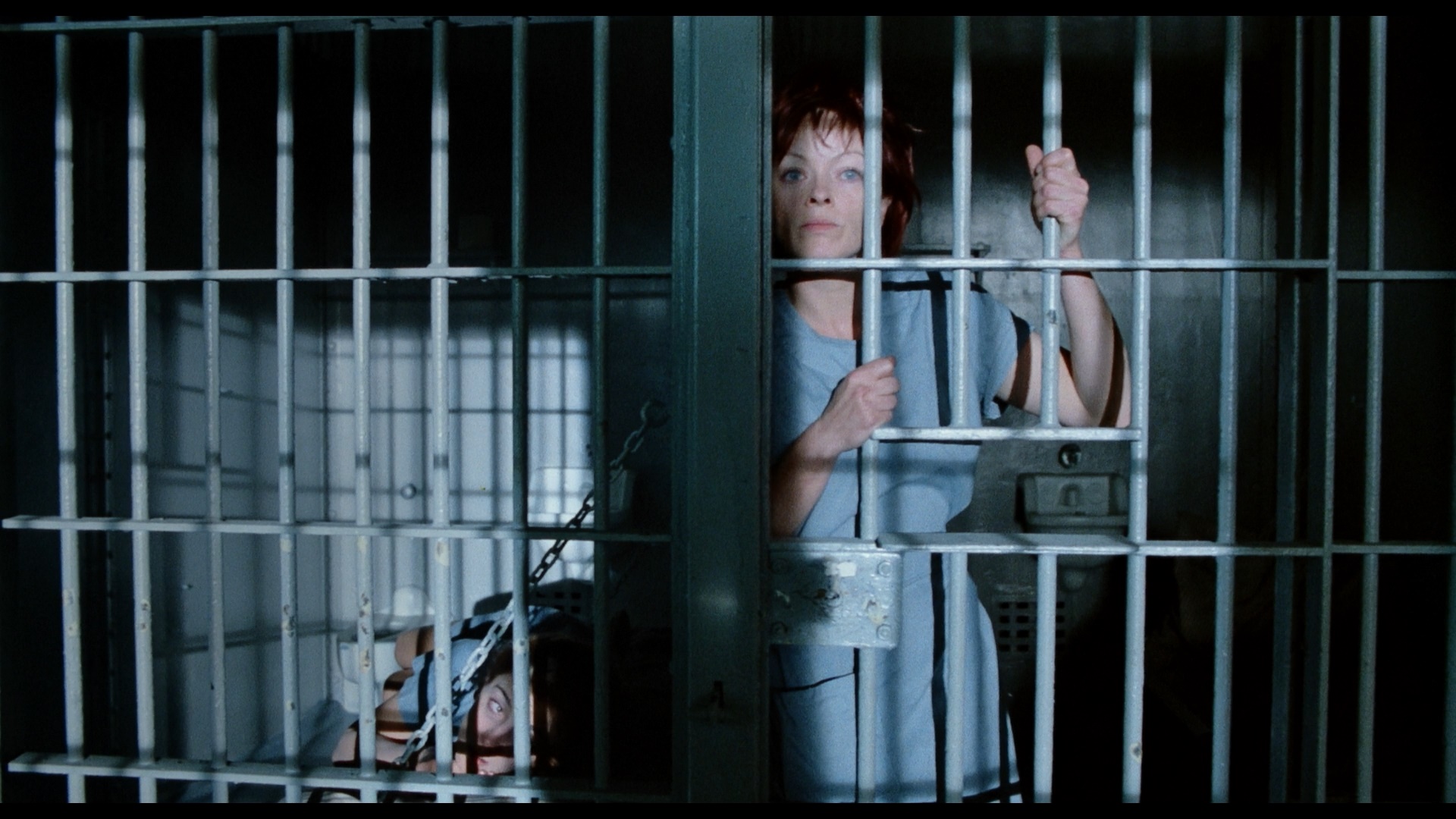 moodier shots a lot more visual heft, and film grain is resolved far more realistically and with a more natural texture. For some reason this film was mixed and released in mono (a practice well on its way out by this point outside of New World and Woody Allen titles), and that's carried over here for the solid English DTS-HD MA 2.0 track with optional English SDH subtitles. (A Dolby Digital option is also included if you really need to hear it lossy.) The one big video extra here is "Telling Her Story" (12m42s) with Schrader ruminating on this film's placement among his usual roster of "misfit male" films, the casting of Richardson, the narrative obstacle that scared away many other filmmakers, the connection to John Waters and Hearst via this film's screening at Cannes, and his misgivings about putting such a complex story into a two-hour feature. A promotional gallery (1m10s) is also included; the trailer (which was present on the earlier DVD) is absent here but isn't particularly missed.
moodier shots a lot more visual heft, and film grain is resolved far more realistically and with a more natural texture. For some reason this film was mixed and released in mono (a practice well on its way out by this point outside of New World and Woody Allen titles), and that's carried over here for the solid English DTS-HD MA 2.0 track with optional English SDH subtitles. (A Dolby Digital option is also included if you really need to hear it lossy.) The one big video extra here is "Telling Her Story" (12m42s) with Schrader ruminating on this film's placement among his usual roster of "misfit male" films, the casting of Richardson, the narrative obstacle that scared away many other filmmakers, the connection to John Waters and Hearst via this film's screening at Cannes, and his misgivings about putting such a complex story into a two-hour feature. A promotional gallery (1m10s) is also included; the trailer (which was present on the earlier DVD) is absent here but isn't particularly missed.![]()